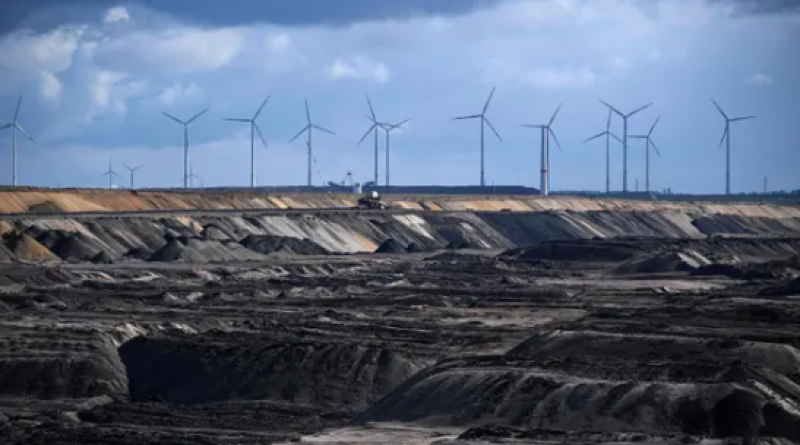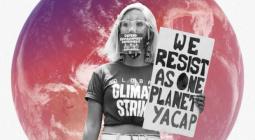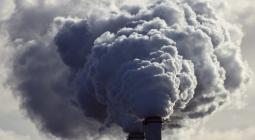UK's Cop26 president calls for world to get on track to hit net zero by 2050

Alok Sharma sets out UK’s aims as host of climate talks, including new emissions targets for 2030.
The world must be put on a path to reaching net zero by 2050 if the goal of holding global temperature rises below 1.5C is to be kept within reach, the UK host of this year’s climate talks has said.
Alok Sharma, the president of the UN Cop26 climate summit, said that for the talks in Glasgow in November to be judged a success, governments must urgently set out their targets to cut greenhouse gas emissions over the next decade including announcing an end to new coal power plants and commitments to phase out existing ones. Sharma is also urging countries to end the sale of new petrol and diesel vehicles.
The UK’s role as host will be pivotal in the talks, seen as one of the last chances to get on track to meet the goals of the Paris agreement and limit temperature rises to well below 2C above pre-industrial levels, with an aspiration to stay below 1.5C. Current commitments would lead to a rise of more than 3C, which scientists say would be catastrophic.
Writing in the Guardian, Sharma set out the UK’s aims as host for the first time. He wrote: “I want to put the world on a path to reach net zero by the middle of the century, which is essential to keeping 1.5C within reach. Today’s global targets for 2030 are nowhere near enough to meet the Paris agreement temperature goal. So the UK is using the Cop26 presidency to urge all countries to set 2030 emissions reductions targets that put us on a path to net zero.”
The UK’s four goals for Cop26 are:
-
For countries to set net zero emissions targets, which governments responsible for two-thirds of global emissions have already done, and set targets for emissions cuts by 2030.
-
To formulate plans for countries to adapt to the impacts of the climate crisis.
-
To encourage rich countries to provide finance to the poor world for emissions cuts and adaptation.
-
For civil society to take a strong role in the talks.
Alongside those key aims, Sharma is urging some specific policies. “Over this year we want to see countries making ambitious commitments on ending the sale of new petrol and diesel vehicles,” he wrote. “And we want significant new commitments on ending new coal power, and phasing out existing plants … Coal is a relic of a bygone age, and this year we need a final push to leave it in the past where it belongs.”
He also called on countries to ensure a green recovery from the Covid-19 pandemic, rather than pouring money into fossil fuels and high-carbon infrastructure as most have done so far. “We need a green thread running through all Covid-19 recovery packages,” he said.
Boris Johnson urged all countries that had not yet done so to make the key commitment to a net zero target. “Since the UK took on the Cop presidency, commitments to net zero have grown from around a quarter of the world’s economy to 70%,” said the prime minister. “That’s promising, but we need more countries to pick up the baton.”
Sharma pointed to the UK’s policies on phasing out cars and coal as examples for other countries to follow. However, the UK has faced fierce criticism in recent weeks for decisions that green experts say will have a negative impact on the climate and could damage the government’s standing as host of the talks.
The green light for a new coalmine in Cumbria is now to be subject to a review after weeks of dispute. The government is hoping the review will defuse the row, and has previously insisted that the mine has no bearing on Cop26 because the coal would be used for steelmaking rather than power generation. But campaigners were infuriated by the government’s dithering and the appearance of support for coal.
Rachel Kennerley, a climate campaigner at Friends of the Earth, said: “All countries need to act to stop climate breakdown, but it’s hypocritical to demand more and more action of countries who did the least to cause climate change when the UK is so far from doing its fair share. Political and financial support for coal, oil and gas needs to stop at home and internationally before the UK can congratulate itself on being a climate leader.”
Sharma will also face tricky questions from developing countries on finance. The UN secretary general, António Guterres, said in December that finance would play a key role in the talks, and developing countries were concerned that a key target – for poor countries to receive $100bn a year in climate finance – was not being met.
The UK has pledged £11.6bn over the next five years, and Sharma wrote that he was “pushing others to follow our lead”. However, that task will be made harder by the decision of the chancellor, Rishi Sunak, to cut overseas aid from 0.7% of GDP to 0.5%. Although climate finance spending is ringfenced, the budget cut will affect many closely related aid programmes.
David Cameron, the former prime minister, said last month that the aid cut would hurt the UK’s ability to influence countries through “soft power”. He said: “It’s both a tragedy and a mistake … our aid budget was a key element [of soft power].”
The government has also faced questions over its own commitment to a green recovery and the lack of a detailed plan for meeting net zero emissions. Its flagship programme for a green recovery was the green homes grant to subsidise home insulation and low-carbon heating with more than £1.5bn of public money. After a troubled start, most of that money remains unspent and will now be withdrawn instead of rolled over to next year. Businesses said ministers had “pulled the rug” from under the scheme.
18 March 2021
The Guardian





